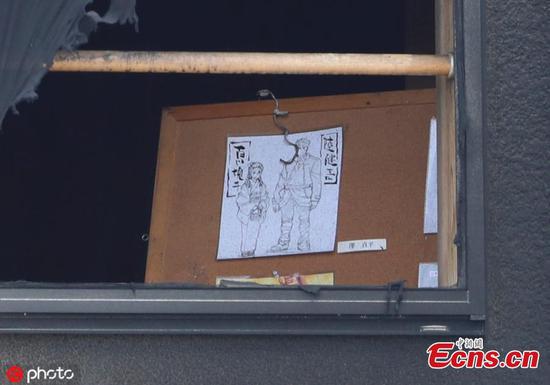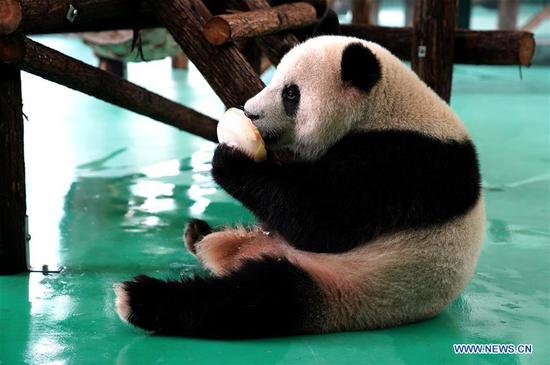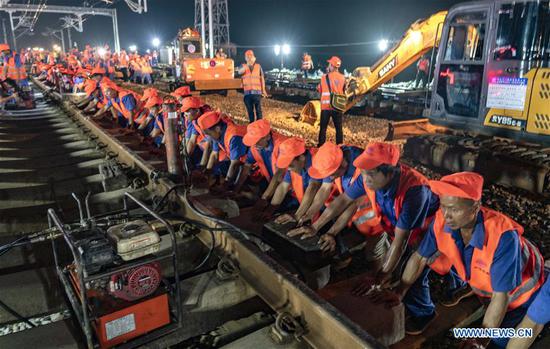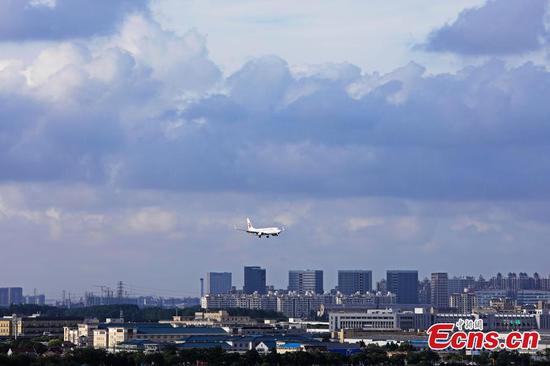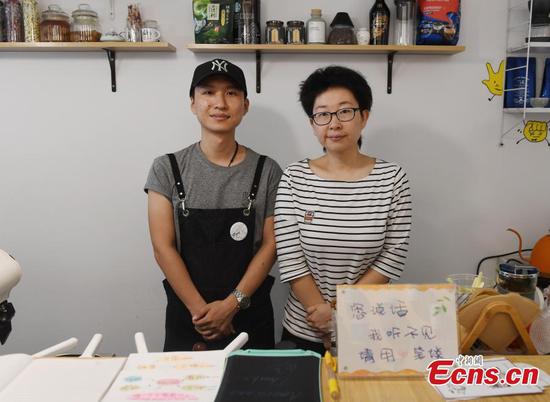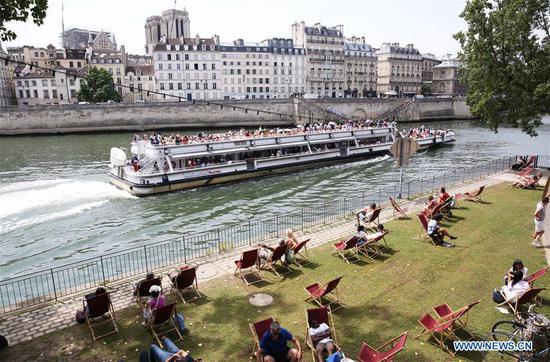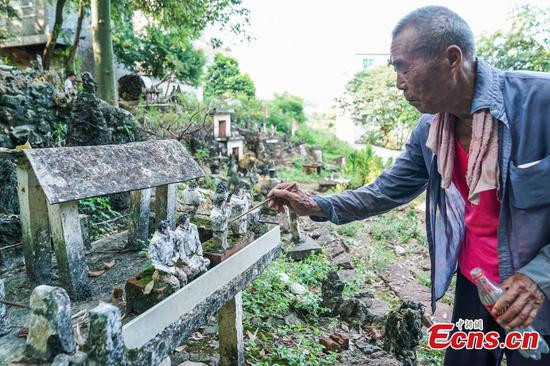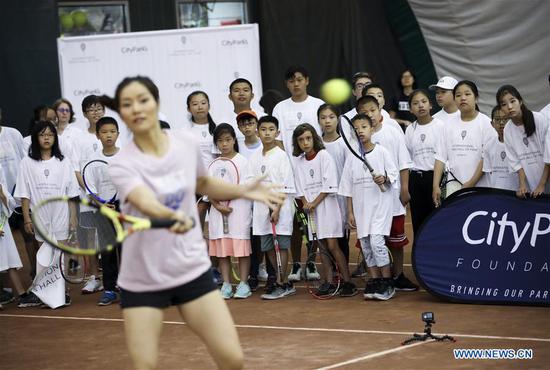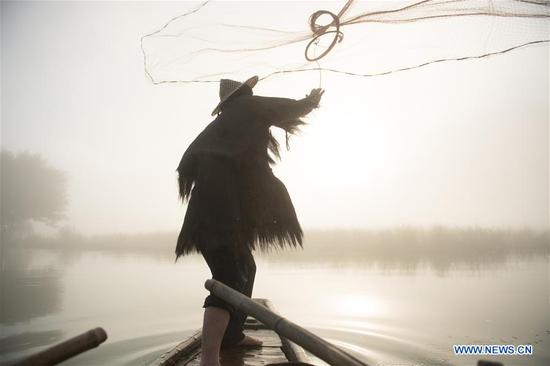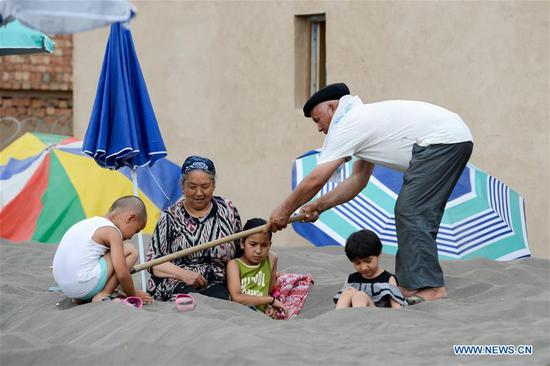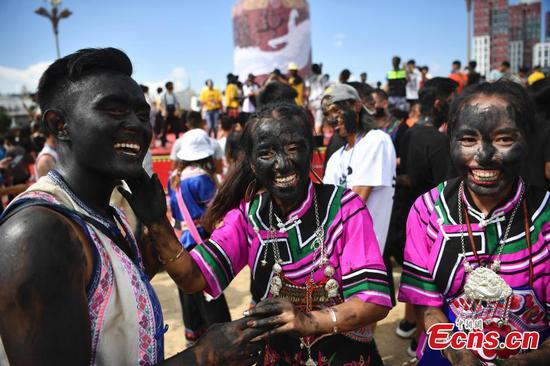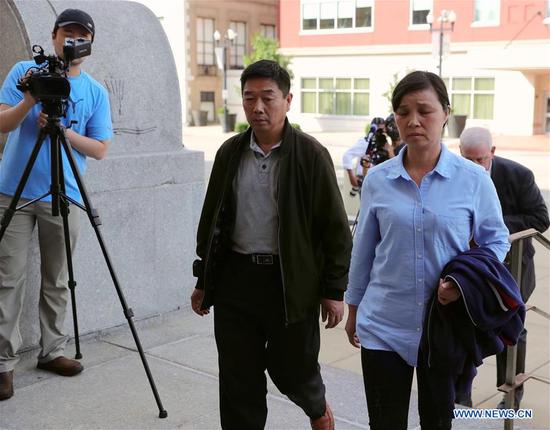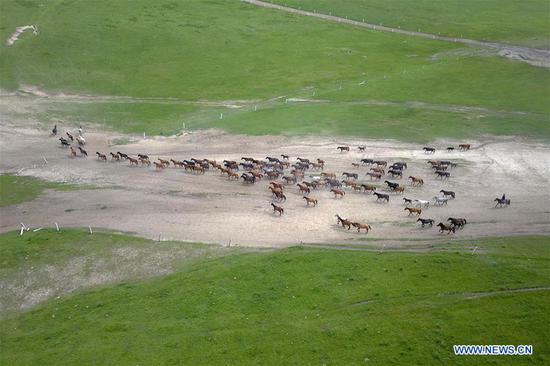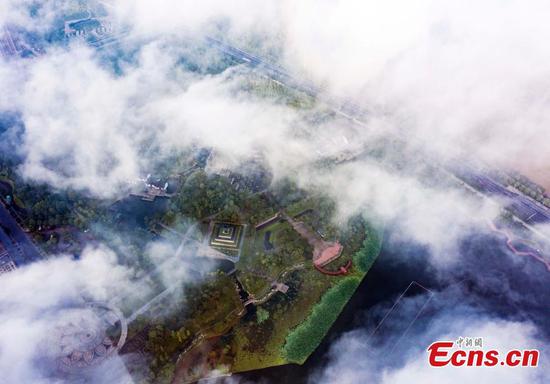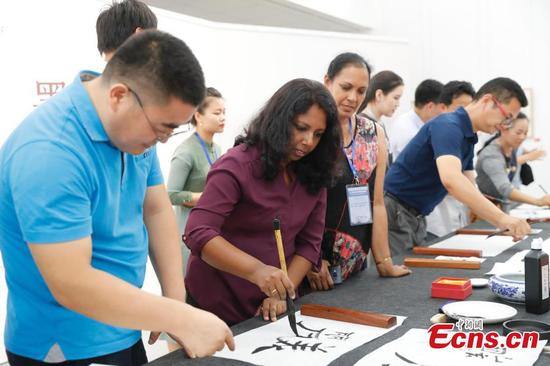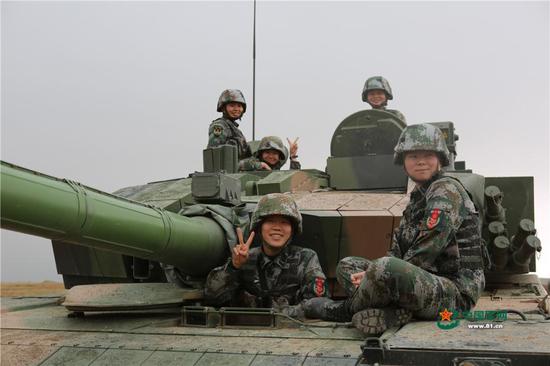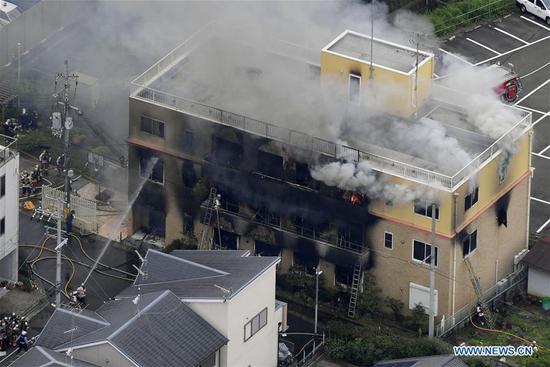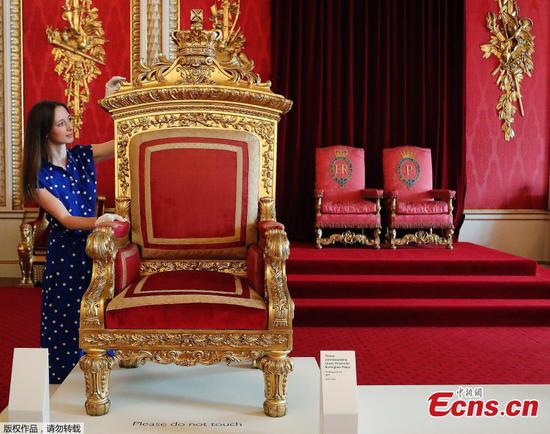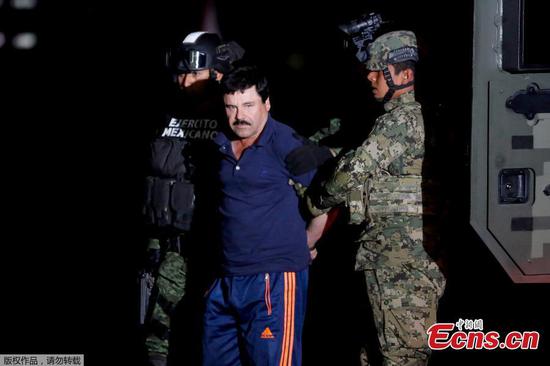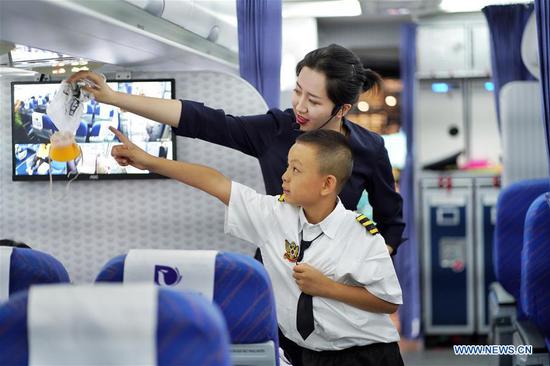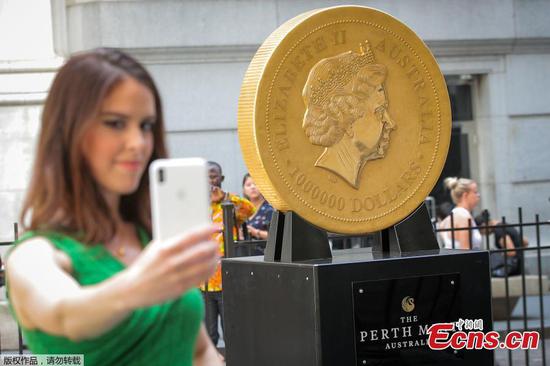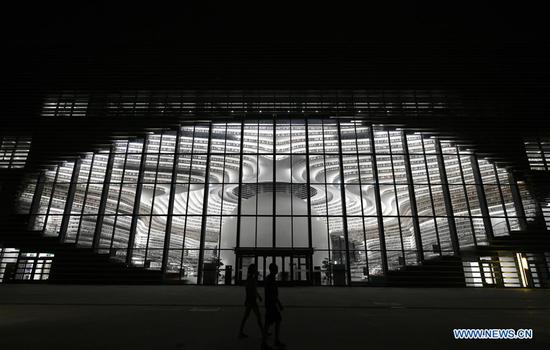Fighting injustice
Liu Jiang's grandfather Liu Lian joined the Red Army in 1930 at the age of 16. The veteran, who once worked with some famous Chinese generals including Xiang Ying, deputy commander of the New Fourth Army before he was assassinated in 1941, and Zhu De, one of the 10 marshals of the People's Liberation Army, never changed his belief in the Party though he narrowly escaped death multiple times.
Liu Lian was captured in Xingguo in 1935 while fighting as a guerrilla. He lied to his captors, telling them he was a transportation worker, and was eventually set free after two years in prison, said Liu Jiang, 45, an official in the Xingguo government.
Soon after getting out of prison in 1937, Liu Lian walked more than 200 km to try and rejoin his fellow fighters. He slept in graveyards at night to avoid being found by the enemy. The veteran, however, failed to find his comrades, said his grandson.
But Liu Lian picked up a gun again after getting in touch with the Party in 1938 and joined the New Fourth Army. In January 1941, the Nationalist forces surrounded and destroyed the army's headquarters and most of the 9,000 soldiers were killed.
Liu Lian was one of 2,000 who survived. He was determined to return to the army and eventually rejoined it, Liu Jiang said.
Zhang Chunming's father Zhang Fangyi became a nurse in the Red Army in 1933 aged 17, and was one of more than 600 Xingguo soldiers who completed the march.
Zhang Chunming, 68, said his father's reasons for joining up typified the injustices suffered by people at that time.
His father was a craftsman who should have been able to make a decent living. He made sandals and rain capes from straw and also had expertise in fluffing cotton to make it soft enough to be used in bedding. However, he was not properly fed or clothed because of exploitation by landlords, said Zhang Chunming, a retired doctor in Xingguo.
"My father failed to get his wages from the landlords and one of them even set his dog on him. Sometimes, he worked for the landlords but he finally owed money to them rather than getting paid. It was an unequal society," he said.









